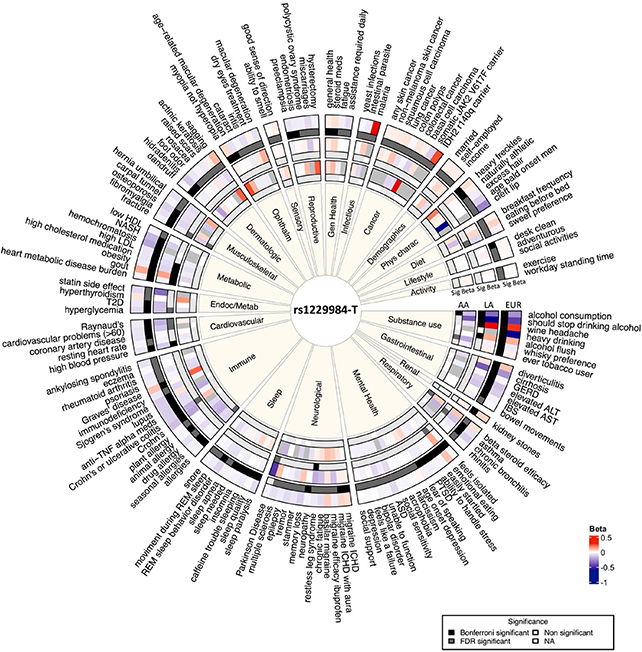Genes that offer protection against excessive drinking – and the health issues related directly to it – are also linked to other health conditions such as heart disease and mental health, a new study shows.
The international team of researchers behind the study ran a detailed analysis on more than 3.2 million DNA records, looking at specific changes in genetic code called single-nucleotide polymorphisms, or SNPs.
Variants (or alleles) of these SNPs have previously been found to be protective when it comes to alcohol consumption and alcohol use disorders (AUDs). For example, they may trigger nausea while drinking, which acts like an instant hangover.

"The people who have the minor allele variant of the SNP convert ethanol to acetaldehyde very rapidly," says Sandra Sanchez-Roige, a psychiatric geneticist at the University of California (UC) San Diego. "And that causes a lot of negative effects."
"These variants are primarily associated with how much someone may consume alcohol, and they also tend to prevent alcohol use disorder, because these variants are primarily associated with the quantity of alcohol someone may drink."
The people with these protective genes had less chronic fatigue and needed less daily assistance, but also had worse health outcomes in areas including tobacco use, emotional eating, Graves disease, and hyperthyroidism. In general, the people with these genes had better health overall. Alcohol-protective genes were also linked to a higher risk of malaria, lung cancer, and skin cancer.
These connections aren't strong enough to prove cause and effect, but now they've been identified, researchers can start looking at them in more detail. It's possible that they may result from alcohol consumption patterns, rather than the genetic variations directly.
"Do these genetic differences influence traits like malaria and skin cancer in a manner that is independent of alcohol consumption?" asks behavioral geneticist Abraham Palmer, from UC San Diego.
Using large data sets like this helps scientists to spot patterns that would otherwise go unnoticed, and the team classified individuals as being European, Latin American, or African American to avoid problems with population stratification – where the results are skewed because of different genetic ancestry and health risks between groups.
Ultimately, the hope is the findings might give experts further options in medications or other forms of therapy, covering all of these health issues (including alcohol abuse).
"Understanding the underlying mechanisms of these effects could have implications for treatments and preventative medicine," says Sanchez-Roige.
The research has been published in eBioMedicine.
